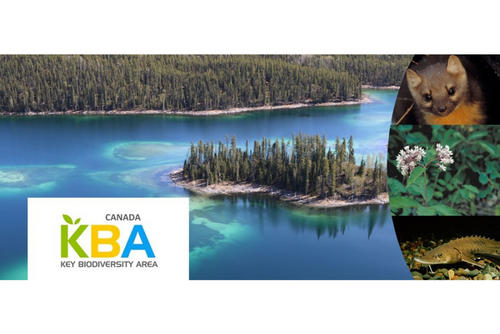
Summer is coming to an end and we’re in for an interesting fall as our various worlds get shifted around again. Good luck to everyone who has some type of transition coming up.
The KBA Coalition is particularly focused these days on establishing a robust review process for KBA proposals that welcomes input from both species and site experts and from stakeholders and rights holders that have an interest in a particular site that has been identified as a KBA. We will soon post a description of the review process on the KBA Canada website. In the meantime, send us a note if you have questions about the KBA identification or review processes.
We plan to offer a set of free webinars in the fall to provide updates on the Canadian KBA initiative as well as deeper dives into particular projects that fall under the KBA Canada umbrella. The first webinar in the series will focus on the work of WCS Canada/Guelph University post-doctoral fellow Dr. Jeffrey Wall. Dr. Wall began work in February 2020 with the Conservation through Reconciliation Partnership (CRP), collaborating with Dr. Faisal Moola, Dr. Robin Roth, Dr. Cheryl Chetkiewicz and Dr. Ciara Raudsepp-Hearne. Dr. Wall is employing a biocultural perspective to explore compatibilities between Indigenous Peoples’ valuing of and role in environmental health (including aspects of biodiversity) and the KBA Standard – a global ecological approach to valuing biodiversity. His study is being implemented in Mi’kmawi/Nova Scotia to investigate how the Mi’kmaq People’s environmental legacy and continued maintenance of social-ecological systems remain essential forces in environmental health in the territory and how they may impact ecologically-based indicators of biodiversity value. We will send out more information about this upcoming webinar in the next couple of weeks.
As always, please get in touch if you have questions or if you want to learn more.
Ciara Raudsepp-Hearne
Canada Key Biodiversity Areas Coordinator / Coordonnatrice Zones Clés pour la Biodiversité